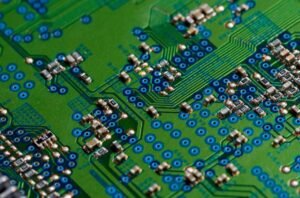Artificial Intelligence Questions
Artificial Intelligence (AI) is a rapidly developing field with the potential to revolutionize various aspects of our lives. As AI continues to advance, it raises important questions and concerns regarding its impact on society, ethics, and the future of work. In this article, we will explore some of the key questions surrounding AI and provide insights into this fascinating field.
Key Takeaways
- Artificial Intelligence (AI) raises important questions about its societal impact and ethical implications.
- The integration of AI in the workplace requires careful consideration of its potential effects on employment and job roles.
- AI algorithms can have inherent biases, which raises concerns about fairness and the potential for discrimination.
- The future of AI regulation is a topic of ongoing debate, focusing on issues such as privacy, accountability, and transparency.
**Artificial Intelligence** is a term used to describe the development of computer systems that can perform tasks that typically require human intelligence, such as speech recognition, decision-making, and problem-solving. It encompasses various subfields, including machine learning, natural language processing, and computer vision.
*AI technologies have the potential to greatly enhance our lives, with applications ranging from healthcare and transportation to finance and entertainment.*
AI Ethics and Societal Impact
As AI becomes more prevalent, several important ethical considerations emerge:
- *What are the ethical implications of AI on privacy, security, and personal data?*
- *How can we ensure AI algorithms are fair and unbiased when applied to critical decision-making processes, such as hiring or criminal justice?*
- *What are the potential societal impacts of widespread AI adoption, particularly in terms of employment and job displacement?*
These questions highlight the need for thoughtful regulation and responsible deployment of AI technologies to ensure their benefits are maximized while minimizing any potential negative consequences.
The Bias Challenge
**Bias** in AI algorithms is a significant concern. AI systems learn from historical data, which can perpetuate existing biases and inequalities:
- *Biased training data can result in discriminatory outcomes, such as racial or gender bias in facial recognition systems.*
- *Addressing bias requires diverse and representative training data, as well as careful monitoring and evaluation of AI systems to detect and mitigate any biases that may arise.*
Researchers and organizations are actively working to develop techniques and frameworks to address these challenges and reduce bias in AI algorithms.
Regulating AI
The rapid advancement of AI technologies has prompted discussions about the need for appropriate regulation:
- *How can AI technologies be governed to ensure ethical and responsible use?*
- *What are the potential risks associated with AI, such as job displacement or amplification of existing inequalities?*
- *Should there be safeguards in place to protect individuals from potential misuse of AI technologies?*
These questions demand a comprehensive approach to AI regulation, encompassing areas such as privacy, accountability, transparency, and the establishment of appropriate standards and guidelines.
Interesting Data Points
| Year | AI Funding (USD) |
|---|---|
| 2015 | $5.0 billion |
| 2016 | $6.0 billion |
| 2017 | $12.0 billion |
**AI funding** has been on the rise, indicating increased investments and interest in the field.
Future of Work
The integration of AI in the workplace raises important considerations for the future of work:
- *How will AI impact various industries and job roles?*
- *What skills will be in high demand as automation and AI technologies advance?*
- *What are the potential benefits and challenges associated with human-AI collaboration in the workplace?*
These questions emphasize the importance of adaptation, upskilling, and policies that ensure a smooth transition in the changing landscape of work.
Interesting AI Facts
| Fact | Statistic |
|---|---|
| AI Job Growth | By 2022, an estimated 58 million new jobs related to AI will be created globally. |
| AI Job Displacement | By 2030, up to 800 million jobs could be automated, according to a study by McKinsey. |
| AI Research Output | China has the highest number of published AI research papers, followed by the United States. |
These interesting facts shed light on the potential opportunities and challenges associated with AI in the coming years.
The ongoing advancements in AI technology present exciting possibilities and significant challenges. As we move forward, it is crucial to address the ethical, societal, and regulatory aspects of AI to ensure responsible and beneficial deployment. By fostering dialogue and collaboration, we can harness the power of AI while addressing its potential risks and ensuring a sustainable future for all.

Common Misconceptions
1. AI will replace human workers
One common misconception about artificial intelligence (AI) is that it will completely replace human workers in various industries. While AI has the potential to automate certain tasks and streamline processes, it is unlikely to completely eliminate the need for human workers.
- AI can enhance human productivity by handling repetitive and mundane tasks, freeing up time for more complex and creative work.
- AI is not capable of replicating human qualities such as empathy and emotional intelligence, which are often required in customer service and caregiving roles.
- AI still requires human supervision for decision-making and ethical considerations, as machines are not inherently capable of moral judgment.
2. AI is only for large corporations
Another misconception is that AI is only accessible to large corporations with extensive resources. However, AI technology has become more affordable and accessible, allowing small and medium-sized businesses to also leverage its benefits.
- There are various AI platforms and tools available at different price points, making it possible for businesses of all sizes to implement AI solutions.
- AI startups and service providers offer affordable and customizable AI solutions, enabling smaller businesses to compete in the market.
- AI technology can be scaled according to the needs of a business, making it flexible and adaptable to different budgets and requirements.
3. AI is infallible and unbiased
There is a common misconception that AI systems are infallible and unbiased because they are based on algorithms and data. However, AI systems can inherit biases from the data they are trained on and can make errors or perpetuate existing biases.
- Training data used for AI systems can contain biased or unrepresentative samples, leading to biased results or decisions.
- AI relies on human designers and programmers, who can introduce their own biases consciously or unconsciously during the development process.
- Regular evaluation and auditing of AI systems are necessary to identify and address any biases or errors that may arise.
4. AI is a threat to humanity
Some people have a fear that AI will become so advanced that it poses a threat to humanity. While there are legitimate concerns about AI, such as its potential impact on job displacement and privacy, the idea of AI turning against humanity like in science fiction movies is largely a misconception.
- AI systems are created to serve specific tasks and goals, and they lack the consciousness or intention to harm humans.
- AI operates based on the algorithms and data it is trained on, and it can only make decisions within that scope.
- Ethical frameworks and guidelines can be established to ensure responsible use of AI technology and prevent any unintended consequences.
5. AI can understand everything like humans
Contrary to popular belief, AI does not possess the same level of understanding and contextual reasoning as humans. AI is built to process and analyze vast amounts of data efficiently, but it lacks the depth of human comprehension.
- AI may excel in specific domains like image recognition or language translation, but it cannot replicate human-like general intelligence.
- AI relies on pattern recognition and probabilistic modeling, while human understanding involves intuition, empathy, and complex reasoning.
- AI can be fooled by adversarial attacks or manipulated data, which highlights its limitations compared to human intelligence.

Artificial Intelligence Questions
Artificial Intelligence (AI) has become an integral part of our lives, with advancements in technology enabling us to utilize AI in various domains. However, AI also raises important questions and concerns that need to be addressed. The following tables present insightful information related to different aspects of AI, shedding light on the advancements, impact, and ethical considerations surrounding this transformative technology.
AI Advancements
Table: Comparison of AI advancements in selected years
| Year | AI Milestones |
|---|---|
| 1956 | First AI conference held at Dartmouth College |
| 1997 | Deep Blue defeats chess world champion Garry Kasparov |
| 2011 | IBM’s Watson wins against human players on Jeopardy! |
| 2016 | AlphaGo defeats world champion Lee Sedol in Go |
| 2019 | OpenAI’s GPT-2 generates human-like text |
AI Impact on Job Market
Table: The impact of AI on job market segments
| Job Market Segment | AI Impact |
|---|---|
| Manufacturing | Automation leads to increased productivity but reduces certain manual labor jobs. |
| Healthcare | AI aids in diagnosing diseases but may replace some healthcare professions. |
| Transportation | Self-driving vehicles may disrupt job roles in the transportation industry. |
| Customer Service | AI-powered chatbots are replacing some customer service positions. |
| Finance | AI algorithms are transforming financial analysis and trading. |
AI Ethics and Bias
Table: Instances of AI bias from popular applications
| Application | Observed Bias |
|---|---|
| Facial Recognition | Misidentification rates are higher for non-white individuals. |
| Job Recruitment | Algorithms prefer male candidates for well-paid executive positions. |
| Loan Approval | AI systems exhibit racial bias in granting loans. |
| Crime Prediction | Higher rates of predicting criminality among minority populations. |
| Sentencing | AI-powered systems result in harsher sentences for minority defendants. |
AI in Science and Research
Table: Examples of AI applications in scientific fields
| Domain | AI Application |
|---|---|
| Astronomy | AI algorithms assist in analyzing vast amounts of astronomical data. |
| Medicine | AI helps in drug discovery, diagnosis, and treatment planning. |
| Ecology | AI models identify patterns in ecosystems’ dynamics and predict environmental changes. |
| Genetics | AI algorithms analyze genomic data for disease predispositions and effective interventions. |
| Particle Physics | AI supports high-energy particle detection and analysis. |
AI and Privacy Concerns
Table: Privacy concerns associated with AI technology
| Concern | Description |
|---|---|
| Data Breaches | AI systems storing vast amounts of personal information are vulnerable to hacking. |
| Surveillance | AI-powered surveillance technology raises concerns about privacy invasion. |
| Biometric Data | AI-based face recognition systems capture and analyze biometric data without consent. |
| Profiling | AI algorithms can create detailed profiles of individuals without their knowledge. |
| Location Tracking | AI-enabled tracking poses risks to personal privacy and security. |
AI and Cybersecurity
Table: AI applications in cybersecurity
| Application | Benefits |
|---|---|
| Threat Detection | AI identifies patterns indicating potential cyber threats and attacks. |
| Behavioral Analysis | AI algorithms detect abnormal behaviors in network traffic. |
| Vulnerability Management | AI systems scan networks to identify and mitigate vulnerabilities. |
| User Authentication | AI helps improve authentication methods like facial recognition or keystroke analysis. |
| Automated Incident Response | AI automates the response to security incidents in real-time. |
AI in Entertainment
Table: AI contributions to the entertainment industry
| Domain | AI Application |
|---|---|
| Music Composition | AI algorithms generate original music compositions. |
| Movie Recommendations | AI systems personalize movie recommendations based on user preferences. |
| Image Rendering | AI enhances images to produce more realistic visual effects. |
| Virtual Reality | AI technology improves immersion and realism in virtual environments. |
| Character Animation | AI techniques enable lifelike and interactive character animations. |
AI Development Challenges
Table: Challenges faced during AI development
| Challenge | Description |
|---|---|
| Data Quality | Obtaining high-quality and diverse datasets for training AI models. |
| Ethics and Regulation | Ensuring proper ethical guidelines and regulations for AI development and deployment. |
| Interpretability | Understanding and explaining the decision-making process of complex AI models. |
| Robustness | Enhancing AI systems’ resilience to adversarial attacks and unforeseen conditions. |
| Human-AI Collaboration | Developing effective human-AI interfaces and collaborative frameworks. |
AI Public Perception
Table: Public perception of AI technology
| Perception | Observations |
|---|---|
| Fear of Job Loss | Many individuals worry about AI replacing human jobs and creating unemployment. |
| Excitement for Innovations | There is a general enthusiasm for AI’s potential in advancing technology and improving lives. |
| Concerns about Privacy | People express worries about data privacy and surveillance associated with AI. |
| Ethical Quandaries | Public discussions focus on the ethical dilemmas posed by AI’s decision-making capabilities. |
| Hope for Medical Breakthroughs | A significant portion anticipates AI driving breakthroughs in healthcare research and treatment. |
As artificial intelligence continues to progress, its impact on various aspects of life cannot be overlooked. The advancements in AI technology, coupled with its potential repercussions, raise numerous questions that necessitate thoughtful consideration and action. From job market disruptions and privacy concerns to scientific advancements and ethical considerations, these tables provide a glimpse into the multifaceted landscape of artificial intelligence. It is crucial to harness the potential of AI while ensuring the appropriate implementation of regulations and ethical frameworks to navigate the challenges and shape a future where AI augments human capabilities for the benefit of society as a whole.
Frequently Asked Questions
What is Artificial Intelligence (AI)?
Artificial Intelligence (AI) refers to the simulation of human intelligence in machines that are programmed to think and learn like humans. It involves the development of computer systems capable of performing tasks that would typically require human intelligence, such as visual perception, speech recognition, problem-solving, and decision-making.
How does Artificial Intelligence work?
Artificial Intelligence systems use complex algorithms, machine learning models, and deep learning neural networks to process and analyze vast amounts of data. These algorithms enable machines to recognize patterns, make predictions, and perform tasks with a high level of accuracy. AI systems can continuously learn and improve from new data inputs, allowing them to adapt and optimize their performance over time.
What are the applications of Artificial Intelligence?
Artificial Intelligence has numerous applications across various industries. It is used in autonomous vehicles, healthcare for diagnosis and treatment recommendations, finance for fraud detection, customer service through chatbots, recommendation systems for personalized suggestions, manufacturing for process optimization, and many more.
What are the different types of Artificial Intelligence?
There are mainly three types of Artificial Intelligence:
- Narrow AI: This AI focuses on a specific task or domain and is designed to excel at that particular task.
- General AI: This AI possesses intelligence equivalent to human intelligence and can perform any intellectual task that a human can do.
- Superintelligent AI: This AI surpasses human intelligence and capabilities. It has the potential to outperform humans in almost every aspect.
What are the ethical concerns associated with Artificial Intelligence?
AI raises several ethical concerns, including issues related to privacy, data security, bias and discrimination, job displacement, accountability, and the potential misuse of AI-powered systems. The development and deployment of AI require careful consideration and guidelines to ensure it benefits society while minimizing potential negative impacts.
Can Artificial Intelligence replace human jobs?
AI has the potential to automate and streamline many tasks currently performed by humans. While some jobs may be replaced by AI, it is more likely that AI will augment human capabilities and create new job opportunities that require human oversight, creativity, and critical thinking skills. The overall impact of AI on the workforce will depend on how it is implemented and integrated into various industries.
What are the challenges in developing Artificial Intelligence systems?
Developing AI systems is a complex and challenging task. Some of the main challenges include understanding human cognition, data quality and availability, ethical considerations, algorithmic biases, interpretability and transparency of AI models, and ensuring the safety and reliability of AI systems. Addressing these challenges requires collaboration between experts from various fields and continuous research and development.
Is Artificial Intelligence dangerous?
While there are concerns about the potential misuse or unintended consequences of AI, the danger lies more in how AI systems are developed and deployed rather than the technology itself. It is crucial to adhere to ethical standards, regulations, and safety measures to ensure AI is used responsibly and for the benefit of humanity.
What is the future of Artificial Intelligence?
The future of Artificial Intelligence is promising. AI has the potential to revolutionize industries, enhance productivity, improve efficiency, and solve complex problems. As technology advances and AI continues to evolve, we can expect to see advancements in areas such as robotics, natural language processing, computer vision, and more, leading to continued innovation and transformative changes across society.




